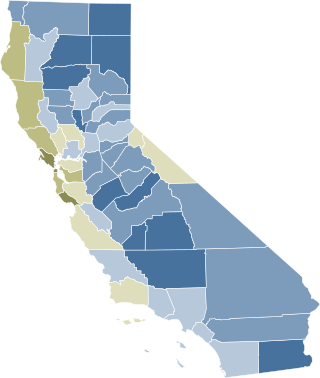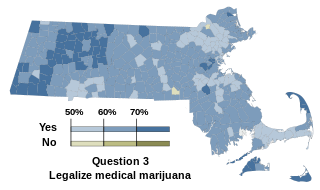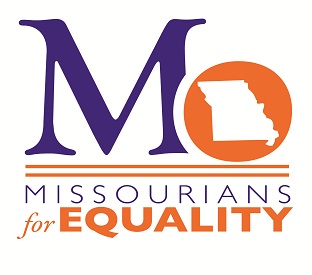Related Research Articles

In political science, an initiative is a means by which a petition signed by a certain number of registered voters can force a government to choose either to enact a law or hold a public vote in the legislature in what is called indirect initiative, or under direct initiative, where the proposition is put to a plebiscite or referendum, in what is called a Popular initiated Referendum or citizen-initiated referendum.
The government of the U.S. state of Missouri is organized into the state government and local government, including county government, and city and municipal government.
The Missouri Plan is a method for the selection of judges. It originated in Missouri in 1940 and has been adopted by many states of the United States. Similar methods are used in some other countries.
The Tennessee Plan is a system used to appoint and elect appellate court judges in Tennessee. It is largely patterned after the Missouri Plan, and an earlier version in Tennessee was called the Modified Missouri Plan. At the next general election following a judicial appointment to the highest courts, and at the end of every eight-year term, voters' input occurs by deciding whether each judge shall be retained through a yes-no retention election.
A judicial retention election is a periodic process in some jurisdictions whereby a judge is subject to a referendum held at the same time as a general election. The judge is removed from office if a majority of votes are cast against retention.

Ballot Measure 2 of 1998 is a ballot measure, since ruled unconstitutional, that added an amendment to the Alaska Constitution that prohibited the recognition of same-sex marriage in Alaska. The Ballot measure was sparked by the lawsuit filed by Jay Brause and Gene Dugan, after the two men were denied a marriage license by the Alaska Bureau of Vital Statistics. In Brause v. Bureau of Vital Statistics, 1998 WL 88743, the Alaska Superior Court ruled that the state needed compelling reason to deny marriage licenses to same-sex couples and ordered a trial on the question. In response, the Alaska Legislature immediately proposed and passed Resolution 42, which became what is now known as Ballot Measure 2. Ballot Measure 2 passed via public referendum on November 3, 1998, with 68% of voters supporting and 32% opposing. The Bause case was dismissed following the passage of the ballot measure.

Proposition 8, known informally as Prop 8, was a California ballot proposition and a state constitutional amendment intended to ban same-sex marriage; it passed in the November 2008 California state elections and was later overturned in court. The proposition was created by opponents of same-sex marriage in advance of the California Supreme Court's May 2008 appeal ruling, In re Marriage Cases, which followed the short-lived 2004 same-sex weddings controversy and found the previous ban on same-sex marriage unconstitutional. Proposition 8 was ultimately ruled unconstitutional by a federal court in 2010, although the court decision did not go into effect until June 26, 2013, following the conclusion of proponents' appeals.

The Greyhound Protection Act is a Massachusetts statute that gradually eliminated commercial dog racing by 2010. It was enacted as Question 3 on the November 4, 2008 ballot in Massachusetts.

The Alaska Clean Water Initiative (ACWI) of 2008 was a citizens-initiative ballot measure. In Alaska, such measures become state law, if a majority of voters vote in favor of the measure. The ACWI contained regulatory language limiting the release and distribution of "sulfide mining" effluents and products into the environment. In August 2008, Ballot Measure 4, the "Alaska Clean Water Initiative," was voted down in the statewide primary election.
Theodore Hoskins, also referred to as Ted Hoskins, is an American politician with the Democratic Party. He was a member of the Missouri House of Representatives and has been mayor of Berkeley, Missouri since his election in 2012. Hoskins was born in St. Louis, Missouri, and raised in Berkeley, Missouri. He served in the United States Air Force from 1956 to 1961, and left with an honorable discharge. He received education in business administration at Florissant Valley Community College, where he obtained an associate's degree, and at the University of Missouri-St. Louis. He is married with three children, and resides in Berkeley, Missouri. Hoskins has worked in a financial capacity with Bi-State Development Agency, and is owner and CEO of T & L Automated Accounting Services.

The Massachusetts "Death with Dignity" Initiative, also known as Question 2, appeared on the November 6, 2012 general election ballot in the state of Massachusetts as an indirect initiated state statute to allow physician-assisted suicide. The measure was filed with the Massachusetts Attorney General and would establish, according to those who filed the measure, an "Act Relative to Death with Dignity". The petition number for the initiative was 11-12, and was filed by Michael Clarke as "An Initiative Petition for an Act Relative to Death with Dignity".

The Massachusetts Medical Marijuana Initiative, appeared as the third question on the state's 2012 ballot as an indirect initiated state statute. The measure allows cannabis to be used for medical purposes in the state. The initiative—backed by the American Civil Liberties Union, the Massachusetts Patient Advocacy Alliance, and the Committee for Compassionate Medicine—was filed with proponents turning in the required signatures to the Massachusetts Attorney General's office by the August 3, 2011 deadline. Those signatures were needed for the required ten qualified voters who submitted the original petition to put forward the full text of the law they want enacted. The initiative passed with support from 63% of state voters.

Missourians for Equality is a nonpartisan political action committee founded in July 2012 and dedicated to ending LGBT discrimination in Missouri. The organization is based in Columbia, Missouri.

Maine Question 1 was a people's veto referendum that appeared on the June 12, 2018 statewide ballot. It sought to reject a law passed by the Maine Legislature that suspended the implementation of ranked choice voting, authorized by Maine voters in a previous referendum, for use in Maine elections until and if an amendment to the Maine Constitution is passed to expressly permit it; failing that, the law would be automatically repealed in 2021. It qualified because supporters of the original referendum collected the necessary number of signatures from registered Maine voters. This vote coincided with primary elections in which party nominees for governor, U.S. Senate, U.S. House, and the Maine Legislature were chosen through RCV to run in general elections on November 6.

An Act to Prevent Cruelty to Farm Animals, more commonly known as Question 3, was the third initiative on the 2016 Massachusetts ballot. The measure requires Massachusetts farmers to give chickens, pigs, and calves enough room to turn around, stand up, lie down, and fully extend their limbs. It also prohibits the sale of eggs or meat from animals raised in conditions that did not meet these standards.

Cannabis in Missouri is legal for recreational use. A ballot initiative to legalize recreational use passed by a 53–47 margin on November 8, 2022. Possession for adults 21 and over became legal on December 8, 2022, with the first licensed sales occurring on February 3, 2023.

Cal 3 was a proposal to split the U.S. state of California into three states. It was launched in August 2017 by Silicon Valley venture capitalist Tim Draper, who led the effort to have it originally qualify on the November 2018 state ballot as Proposition 9, officially the Division of California into Three States initiative. Proponents of the proposal argued that dividing California into three states would provide fairer and more responsive governance for large regions outside of California’s major cities. In July 2018, the Supreme Court of California pulled it from the ballot for further state constitutional review. Draper officially stopped pushing for the measure soon after. On 12 September 2018, the court permanently removed the measure from all future ballots.

2020 Missouri Amendment 2, also known as the Medicaid Expansion Initiative, was a ballot measure to amend the Constitution of Missouri to expand Medicaid under the Affordable Care Act. The initiative was on the August 4, 2020, primary ballot and passed with 53.27% of the vote. Following similar successful ballot initiatives in other states, Republican lawmakers added work requirements to Medicaid expansions, which supporters aimed to prevent by proposing state constitutional amendments for future Medicaid expansions. Opponents sued to prevent the measure from being voted on, but courts ruled in favor of it. The measure was supported most in urban areas and opposed by conservatives. After a delay due to a lack of funding and resulting litigation, the initiative was implemented in October 2021. Implementation was slow and Republican lawmakers attempted to roll back the program and add a work requirement through a state constitutional amendment, which failed after a related Supreme Court decision seemed to prevent its implementation.

On November 2, 2010, Illinois voters approved the Illinois Governor Recall Amendment, a legislatively referred constitutional amendment to the Constitution of Illinois. The amendment changed the state constitution to allow recall elections of Illinois governors.

2022 Missouri legalization initiative was a voter initiative on the November 2022 ballot. It was approved by voters, legalizing cannabis in the U.S. state of Missouri.
References
- ↑ Steve Walsh, "New Group Launches Renewed Attack on Missouri Plan," Missourinet. 2008-02-20. Accessed 2008-02
- ↑ "Better Courts for Missouri". Ballotpedia. Retrieved 2022-10-09.
- ↑ "Missouri Plan opponents put on full-court-press in final days | Political Fix | STLtoday". Archived from the original on 2009-09-27. Retrieved 2009-05-30.
- ↑ Bob Watson, "Group files petition to change court system" [ permanent dead link ] Jefferson City News Tribune. 2008-21-02. Accessed 200814-03.
- ↑ "Missouri 2008 citizen initiatives".
- ↑ Tony Messenger (2009-05-13). "Missouri Plan opponents put on full-court-press in final days". St. Louis Post-Dispatch. Archived from the original on 2009-09-27. Retrieved 2009-05-30.
- ↑ "How major bills fared in Missouri Legislature". St. Louis Post-Dispatch. Retrieved 2009-05-30.[ permanent dead link ]
- ↑ Brennan David (2012-10-18). "Amendment 3 Seeks Changes to Judge Plan". Columbia Daily Tribune. Archived from the original on 2012-11-08. Retrieved 2012-10-18.
- ↑ "2012 Ballot Measures". Missouri Secretary of State. Retrieved 2012-10-18.
- 1 2 Chris Blank, The Associated Press (2009-07-13). "Update: Missouri Court Plan Critics Propose Ballot Measure". Columbia Missourian. Archived from the original on 2013-01-21. Retrieved 2009-07-14.